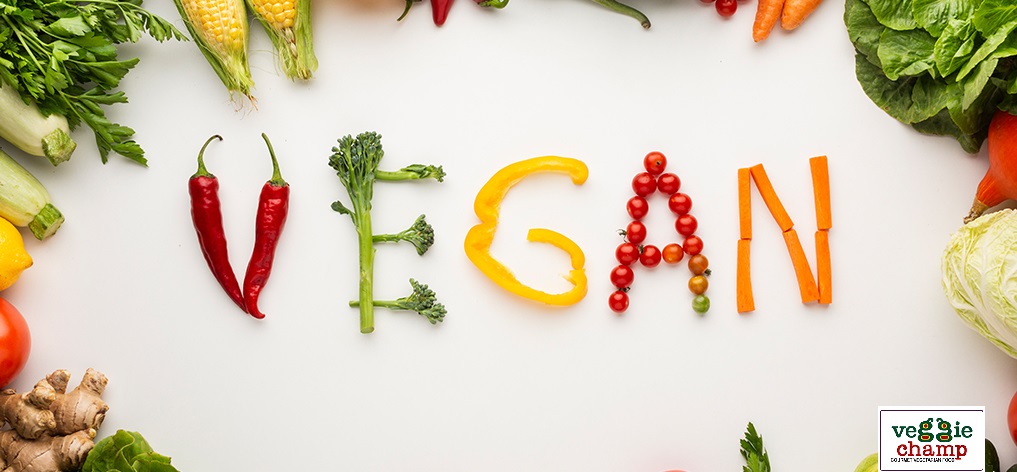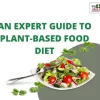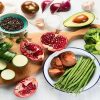
The Vegan Diet for Beginners: 2022 Guide
Before becoming vegan, you need to know what a vegan diet comprises. Vegans often consume soy products and other plant-based foods, and other plant-based meals such as fruits and vegetables.
Both long-term and new vegans need to be mindful of the food’s preparation and additives. For example, bone char may be used to filter white sugar. Coconut or beet sugar and vegan sugar substitutes such as maple syrup, agave, and molasses are also viable options. Whey, casein, lactose, and gelatin, to mention a few, are tricky ingredient names that a new vegan should be on the lookout for since they signal the presence of animal products. If you’re unsure whether a product is vegan, reading the label or doing some research online, VeggieChamp might help.
Dietary Patterns for Vegans
- The vegan diet may be broken down into a number of different varieties, such as:
- Raw Only things that haven’t been cooked over 118 degrees F are allowed in your diet.
- Until 4 p.m., you stick to your raw vegan diet.
- HCLF (high carb, low fat) is a way of eating that emphasises carbohydrates, such as fruits, cereals, and vegetables, while limiting fats, such as nuts, seeds, avocados, and oils.
- 80/10/10 80 percent of calories come from carbohydrates (mainly fruit), 10 percent from protein, and 10 percent from fat in a raw HCLF vegan diet.
How a Vegan Diet Works
A vegan diet is simple: Only eat and drink Vegan Foods and beverages and avoid animal products. A vegan diet may be challenging to maintain since animal by products like cheese and butter can be found in many dishes, particularly when dining out.
Veganism isn’t simply a diet for some individuals; it’s a way of life for them. As a result, they won’t wear leather or fur items, use cosmetic products that have been tested on animals, or use pharmaceuticals that have been tested on animals in any way.
What to Eat and What to Avoid on a Vegan Diet
Consider which items should be at the top of your list and which foods should be avoided while adopting this strategy.
What to Eat if You’re Vegan
Vegan diets are rich in fibre, plant protein, and minerals since they consume a lot of fruits and vegetables.
Following a vegan diet allows you to eat the following items:
- Vegetables
- Fruit
- Nuts
- A nut butter
- Seitan, tofu, and tempeh are all forms of plant-based protein.
- Milk is derived from plants, such as almonds or coconut.
- Oils derived from plant sources
- Bread, quinoa, farro, and rice are all examples of grains.
- Seeds
- Lentils and chickpeas are examples of legumes.
It’s essential to focus on eating whole, minimally processed foods while trying to achieve the best vegan diet possible. However, a variety of faux meats and dairy-free cheeses are also available at VeggieChamp.in. Just read the nutrition labels on these items since they may be laden with salt and preservatives.
What Not to Eat If You’re Vegan
It is essential to avoid all animal products as a vegan, including
- All types of meat and poultry
- Seafood
- Yogurt
- Milk
- Cheese
- Cream
- Butter
- Fish
- Eggs
- Honey
- Egg and dairy-based confections
- Fish oil and lard are included in a wide range of foods.
Bread prepared with eggs and marshmallows and gummy bears made with gelatin are two examples of items that don’t meet the definition of vegan.
The health benefits of a vegan diet
Getting rid of all animal products from your diet may seem difficult, but many who have done it say it has improved their overall health. Moreover, there is more than simply anecdotal evidence to support their claims. Numerous studies back up the health advantages of Vegan Foods diet, many of which are also seen in vegetarianism.
These diets are inherently low in saturated fat and cholesterol since they don’t include any animal products. Obesity, type 2 diabetes, high blood pressure (hypertension), and heart disease are all reduced among plant-based eaters (and complications of heart disease, such as heart attacks).
Being a vegan has certain advantages.
- Detoxifying the body’s organs is made easier by following a vegan diet. It also greatly aids in controlling and reducing the negative effects of diabetes.
- Certain kinds of cancer have been linked to processed and red meat consumption. A plant-based diet may also be used as a cancer prevention strategy.
- A diet rich in fruits and vegetables provides the body with essential nutrients, fibre, and antioxidants.
- A diet rich in fruits and vegetables may also help alleviate various skin and digestive disorders.
- Because of its high fibre content and ability to satisfy you, a vegan diet may help you lose weight.
- Using animals in this way lowers their exploitation, which is a terrible thing to have to go through to satisfy human wants.
- A vegan diet may also reduce the risk of various cancers, maybe because plants contain beneficial phytochemicals, because plant-based diets often boost fibre consumption, or because body weight tends to be lower among individuals who follow a plant-based diet.
- When individuals stop eating animal products, they report changes in their skin. Dairy has been related to acne in some, although the evidence is poor. A plant-based diet rich in antioxidants may help prevent cellular damage and skin ageing.
Getting Started with a Vegan Diet: Some Basic Guidelines
There’s no reason why your Vegan Foods should be bland. It’s all about having a positive attitude and being open to new ideas when cooking with vegetables. Instead of burgers, consider portobello mushrooms, coconut milk lattes, and cashewgurt instead of regular yoghurt.
It would help if you ate a lot of Vegan Foods and veggies instead of sugary treats and processed meals to keep your weight in check. This is the key to maintaining a healthy eating pattern.
Make sure your kitchen is stocked with the basics.
When embarking on a vegan diet, you need to stock your fridge and pantry with the essentials to succeed. Fruits and vegetables are a great source of vitamins A, C, and E and fibre, which helps keep you feeling full. If you don’t go to the grocery store every day or by online from VeggieChamp , it might be challenging to keep a steady supply of fresh produce, so one suggests storing up frozen versions of your favourite foods.
Health studies have proven that following an all-vegan diet is good for you. However, you should be aware of a few major dietary inadequacies and problems you’ll likely encounter if you become vegan.




